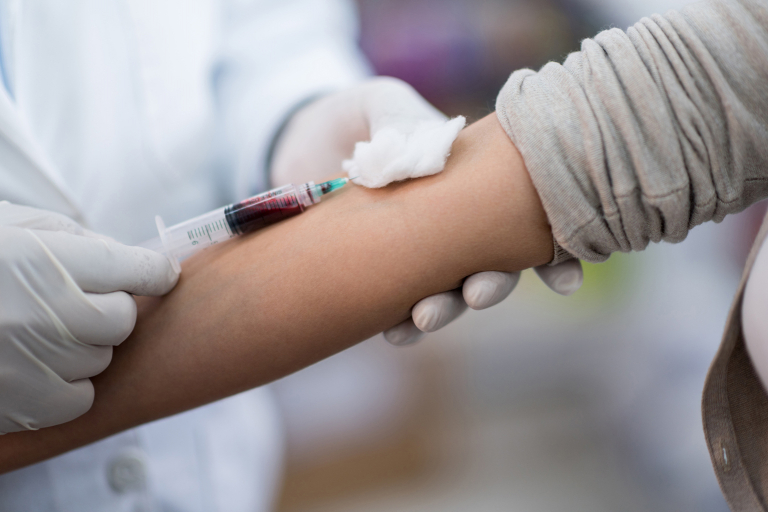How a blood test could predict the outcome of immunotherapy in cancer patients

Image: andresr/istock.com via AFP Relaxnews
Researchers from the University of Zurich in Switzerland have identified biomarkers in the blood that can predict whether cancer patients will respond positively to immunotherapy, a promising treatment that acts like a vaccine against cancer cells. The research is published in the journal Nature.
Oncologists worldwide are closely watching the promising effects of immunotherapy, particularly to combat the most aggressive types of cancer. This technique involves making the immune system recognize cancer cells and fight them, acting in a similar way to a vaccine.
Currently, immunotherapy is effective in treating skin melanoma, liver cancer and lung cancer, and is currently the subject of advanced research in the treatment of breast cancer.
However, as the study authors explain: “around half of cancer patients do not respond to immunotherapy, but still have to put up with its side effects.”
Now, researchers at Switzerland’s University of Zurich have developed a novel method that analyzes more than 50 DNA proteins within a single cell to identify which patients will not respond to the treatment. They can, therefore, save time by pursuing other treatment options.
A major breakthrough in cancer research, the scientists identified biomarkers in the blood of 20 patients capable of predicting whether immunotherapy was likely to be effective before even beginning treatment, based on their immune response prior to treatment and after 12 weeks of treatment.
A key factor in predicting the survival of cancer cells was found to be the frequency of “CD14 + CD16-HLA-DRhi” monocytes in the blood count, signifying a weak immune response to treatment by immunotherapy.
For the study authors, a blood test for these biomarkers could considerably increase the share of patients who benefit from treatment by immunotherapy.
Similarly, patients who are unlikely to have a positive response to this kind of therapy can begin other treatments without losing time.
The findings must now be applied in several clinical trials involving a larger number of patients, the study concludes. JB
RELATED STORIES:
Women who work nights face higher cancer risk — study
Space legend, pioneer dead at 87














